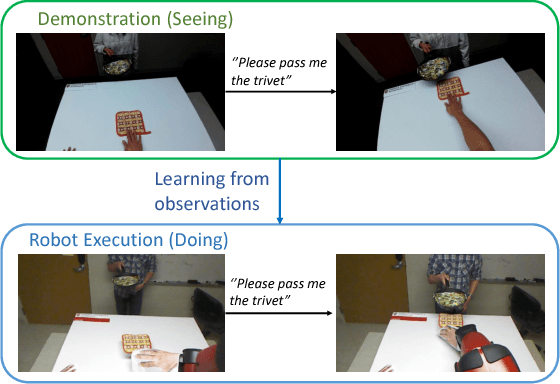A survey of robot learning from demonstrations for Human-Robot Collaboration
Paper and Code
Oct 24, 2017
Robot learning from demonstration (LfD) is a research paradigm that can play an important role in addressing the issue of scaling up robot learning. Since this type of approach enables non-robotics experts can teach robots new knowledge without any professional background of mechanical engineering or computer programming skills, robots can appear in the real world even if it does not have any prior knowledge for any tasks like a new born baby. There is a growing body of literature that employ LfD approach for training robots. In this paper, I present a survey of recent research in this area while focusing on studies for human-robot collaborative tasks. Since there are different aspects between stand-alone tasks and collaborative tasks, researchers should consider these differences to design collaborative robots for more effective and natural human-robot collaboration (HRC). In this regard, many researchers have shown an increased interest in to make better communication framework between robots and humans because communication is a key issue to apply LfD paradigm for human-robot collaboration. I thus review some recent works that focus on designing better communication channels/methods at the first, then deal with another interesting research method, Interactive/Active learning, after that I finally present other recent approaches tackle a more challenging problem, learning of complex tasks, in the last of the paper.
 Add to Chrome
Add to Chrome Add to Firefox
Add to Firefox Add to Edge
Add to Edge